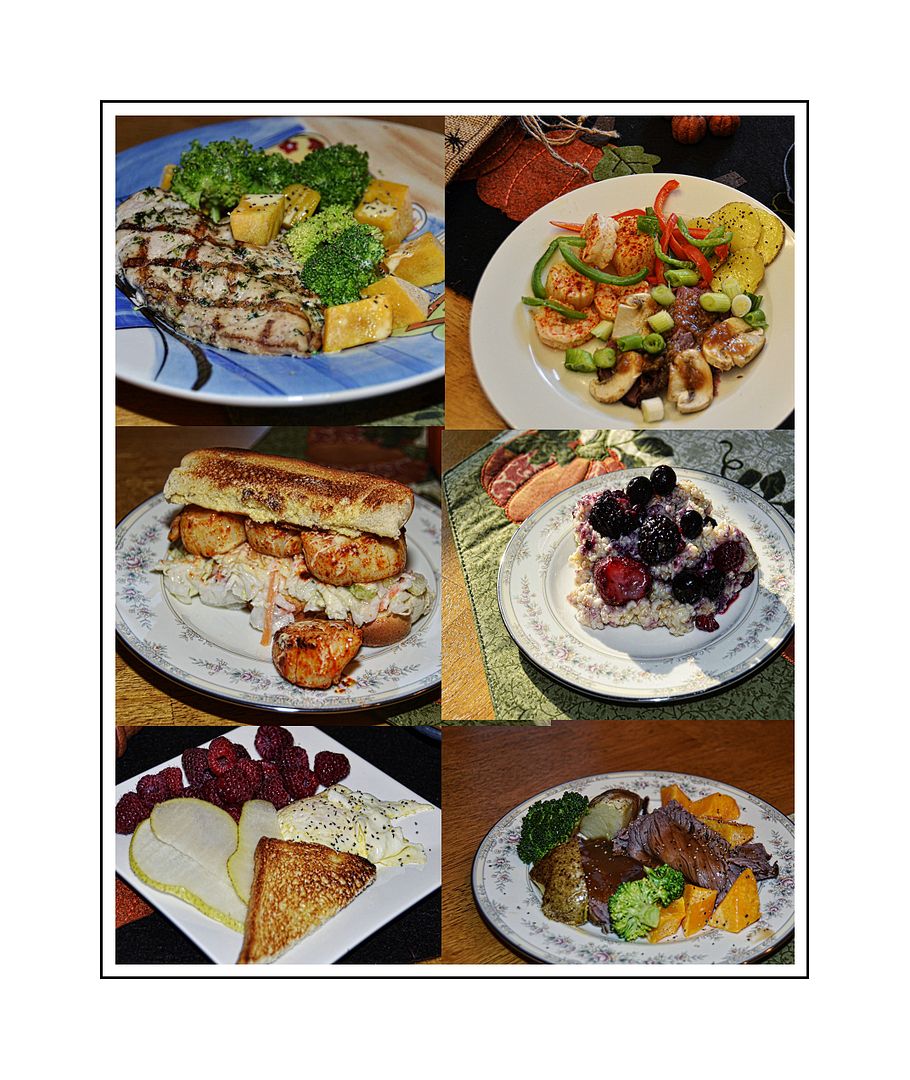We are pleased to announce that as of March 4, 2025, an updated Rich Text Editor has been introduced in the MyFitnessPal Community. To learn more about the changes, please click here. We look forward to sharing this new feature with you!
Healthiest way of eating
Replies
-
With all the information available online (and much of it contradictory), is anyone able to offer an insight into the healthiest way of eating long term?
I posted the following a few months back. I am including a photo of some of my typical meals (including this morning’s breakfast). FYI ONLY – I have eaten like this for over 1 year – it is my “new normal” it is NOT some temporary diet thing. I no longer eat the way I did in the past. Down 171 pounds so far.
“Fast-food & frozen dinners are tempting with hectic schedules. BUT I have found – with just a little planning healthy low-calorie dinners can be just as easy and quick to prepare. Below are just a few of my own meal creations that took 30 minutes or less to prepare. All of them are 250 calories or less…not that I don’t eat meals over 250.
I never eat off a paper plate or out of a container. The last thing I want is a meal that screams “I’m on a diet!” I adjust plate size depending upon the meal. I also have healthy mid-morning / afternoon snacks and save some calories for the TV munchies (100-calorie popcorn, Fiber Bar, Jello, Sugar-free Fruit Cups, Edy’s Frozen Bars etc.)
I’m fortunate – I love to cook and meal-prep in some ways relaxes me – as long as I’m the only one in the kitchen (LOL). I buy mostly healthy foods and then get a bit creative.
I do NOT deprive my wife of her favorites. She does not have a weight problem – I do. I will buy her occasional chocolates, ice cream, pizza, chips and McDonalds etc. and have none of it myself. She has always had those things in moderation and it helps me condition myself.”
Happy eating - everyone is different - I merely post what I have done "long-term" and will continue to do.
HAPPY NEW YEAR!


0 -
Dear Posters,
This thread has been cleaned up to get rid of some off-topic posts and put it back on track. Please remember to debate on-topic and politely. If you believe a post has been made that violates the terms of service, please report it without engaging and a moderator will check it out.
Regards,
Davis_em0 -
Michael Pollan has good advice: Eat food. Not too much. Mostly plants.
There's no magic formula for foods to avoid or add more of. Just eat at a caloric deficit and you'll lose weight.
But what you might find helpful to get you started is, for most meals, to split your plate into three sections. One half of the plate should be non-starchy vegetables. 1 quarter should be carbs. The other quarter should be protein. Nikonpal's plates above are actually a great example of what I mean!
You'll find this will already cut your calories down. Later you can tweak your macros for more/less protein/carbs. Just focus on getting this healthy balance for now. That's pretty sustainable.
Spend enough calories on whatever treats you like so that you don't feel deprived.
I ate this way for a couple of years and kept off a lot of the weight I'd lost. (Not all - I had too many treats.) But as a way to eat healthily, it's definitely sustainable long term.
These days I'm likely to have way fewer carbs and lots more protein, because that stops me eating junk. But I started small.
0 -
My go to site is NutritionSource from Harvard's School of Public Health. A well designed site with information unswayed by advertising or politics.0
-
Thanks everyone. This is certainly 'food for thought'!
(pardon the pun)0 -
I lean towards a plant heavy diet, with very little red meats or grains. I love to load up on fruits and veggies with chicken or seafood. I need to remind myself to add in grains- otherwise nothing, ahem, "moves", so a super low carb diet doesn't work for me. Same with a really low fat diet - I often feel very hungry without some fats in each meal.0
This discussion has been closed.
Categories
- All Categories
- 1.4M Health, Wellness and Goals
- 394.5K Introduce Yourself
- 44K Getting Started
- 260.5K Health and Weight Loss
- 176.1K Food and Nutrition
- 47.5K Recipes
- 232.7K Fitness and Exercise
- 444 Sleep, Mindfulness and Overall Wellness
- 6.5K Goal: Maintaining Weight
- 8.6K Goal: Gaining Weight and Body Building
- 153.1K Motivation and Support
- 8.1K Challenges
- 1.3K Debate Club
- 96.4K Chit-Chat
- 2.5K Fun and Games
- 4.1K MyFitnessPal Information
- 16 News and Announcements
- 1.3K Feature Suggestions and Ideas
- 2.8K MyFitnessPal Tech Support Questions





